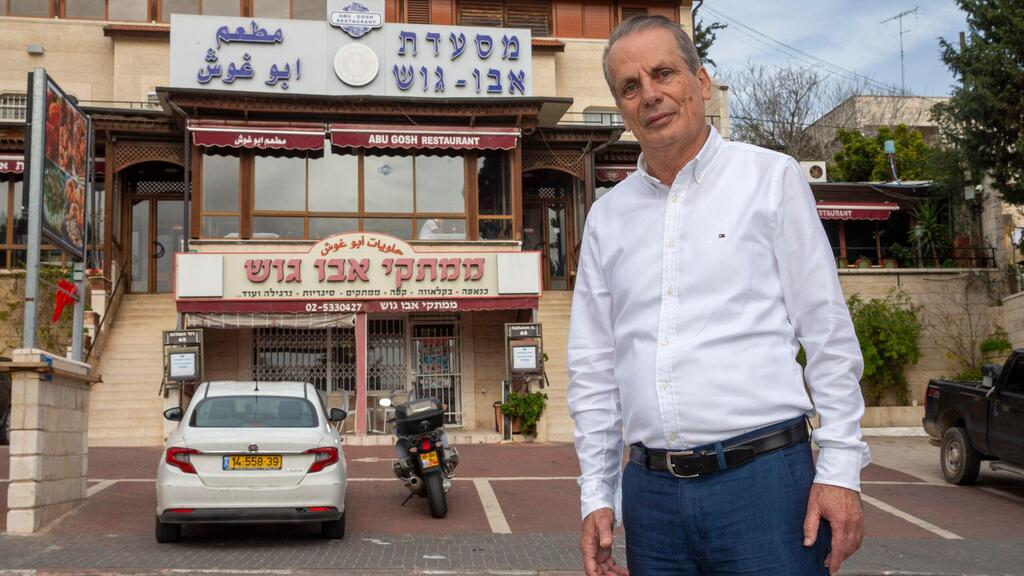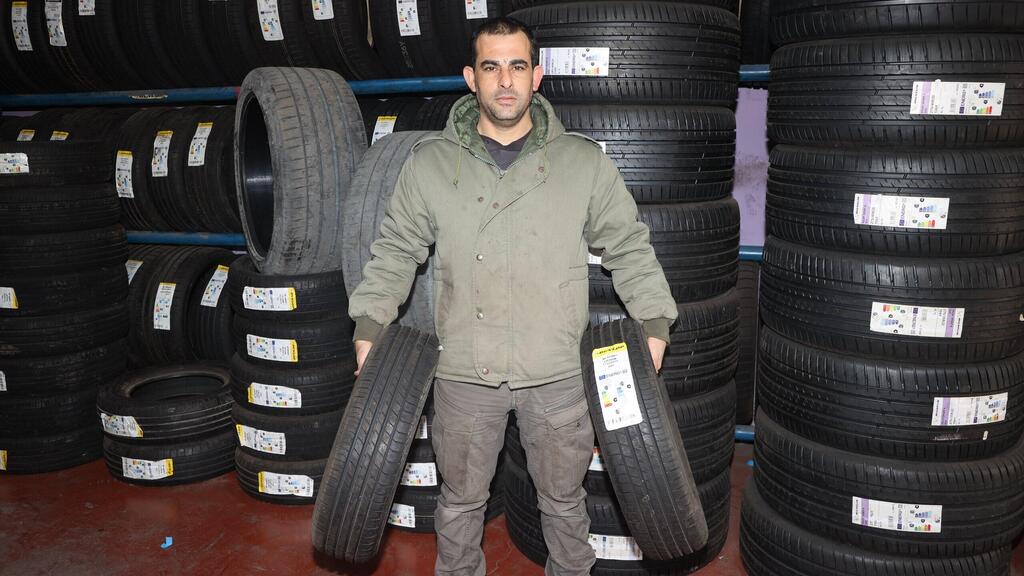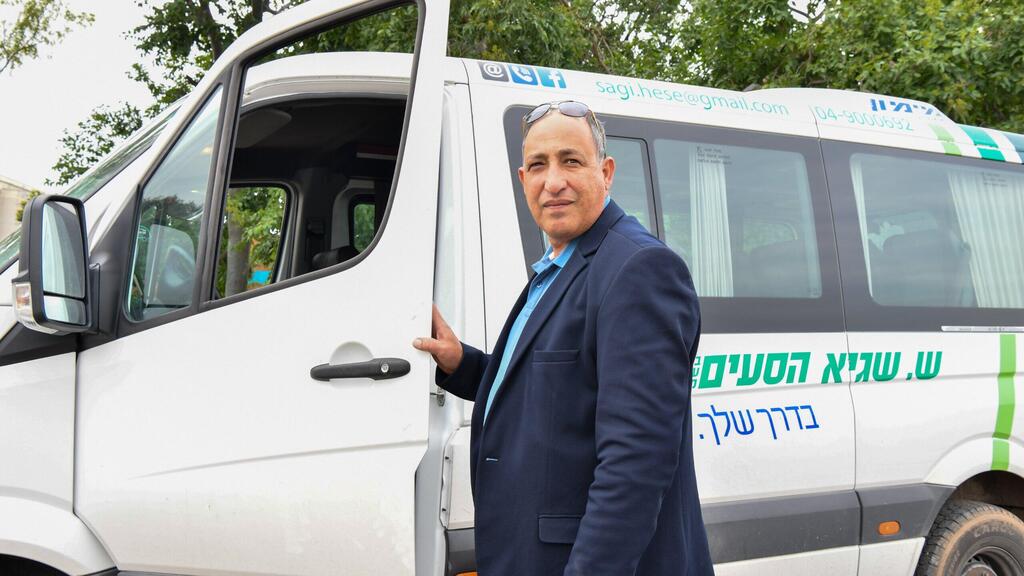Getting your Trinity Audio player ready...
It is not easy to be a minority in wartime. While the guns are roaring, the disadvantaged populations in society are often overlooked. This is especially evident in Arab society; Since the beginning of the war with Hamas in Gaza, most businesses in Arab cities have lost a large percentage of their profits, and some are already laying off workers or closing.
More stories:
In Abu Gosh, an Arab town outside of Jerusalem which is popular with Jewish tourists, residents and vendors say they have lost work and are experiencing a significant loss of income.
4 View gallery


Javad Ibrahim, who owns a restaurant in Abu Gosh, says sales have dropped by 90%
(Photo: Amit Shabi)
"In the last few months, sales have dropped by 90%," says Javad Ibrahim, owner of a restaurant that serves hot and delicious Arab food. "We already closed the restaurant due to Corona and the losses were great, and today we are losing again because of the ongoing war. We even reduced the number of employees from 10 to only four and the income is still not enough for daily expenses. If it continues like this, the damage will be unbearable."
The Tik Tok tire shop in Kfar Qasim also suffered a severe blow to its business. "I had to reduce the number of employees," says owner Abed Issa. "Our work decreased by almost 100% after Jews stopped coming to us at the beginning of the war. Since then, they started calling me and finding out about the situation, and I conveyed to them a picture that entering Kfar Qasim is not dangerous - but there are still many who do not come."
4 View gallery


Abed Issa says Jewish customers have stopped coming to his tire shop in Kfar Qasim
(Photo: Yariv Katz)
Issa says that "if the situation continues as it is, there is a great danger to our livelihood. Arabs and Jews live together in this country, and relations must be maintained. The atmosphere must not be heated and wrong against us."
Jad Ziad, who owns a car wash in Baqa al-Gharbia, no longer accepts orders from Jews. "Before the war, I used to come to Jewish cities and take people's cars to be washed at my place, and return them to their owners. This was a daily job, since the beginning of the war they asked me not to come, maybe because I am an Arab. This sends a message as if the Arabs are enemies, even though we live in coexistence and peace and don't want to hurt anyone."
4 View gallery


Jad Ziad, who owns a car wash in Baqa al-Gharbia, no longer accepts orders from Jews
(Photo: Yair Sagi)
Ahmed Abu-Moh, a taxi driver in Baka, says that "in general I was not exposed to any racist treatment during my work," but adds a qualifier: "At the beginning of the war, a family from the Sharon region asked me to stop picking up their daughter with special needs to attend an educational institution. They told me that they 'want a Jewish driver' - after I worked with them honestly and respectfully for a year and a half. I don't deny that this war changed many things in our lives, but no matter what the circumstances areour relationship must not be harmed."
4 View gallery


Ahmed Abu-Moh, a taxi driver in Baka, stopped driving a Jewish special-needs child to school because the parents preferred a Jewish driver
(Photo: Nachum Segal)
E., the owner of a commercial center in the northern region who asked not to be identified by name, says that "it is not easy to work during a war. In such an atmosphere I pay out of pocket. I closed the center because of a decrease in income. Every Thursday clothes, games, electrical goods, food were sold here, gifts and more - hundreds of customers, Jews and Arabs, would come. Since the war there has been an almost 80% drop in revenue, so we decided to simply close until it calms down."
On the other hand, Arab citizens also say that they stopped visiting Jewish settlements because of the war and the atmosphere. "I used to travel a lot to visit Netanya, shop there and eat," says Abdelrahim Masarwa, a resident of Taiba. "Since the beginning of the war, I am not ready to be there because of the tense atmosphere."
L., a woman from Tira, said that she often shops in the central Israel cities of Ra'anana and Kfar Saba, which are close to where she lives. "Since the beginning of the war, I prefer to shop here in my community because I don't want to encounter an unpleasant relationship. I want to get back to normal, but apparently it will take time. Such an event is something that harms relations," she says.


